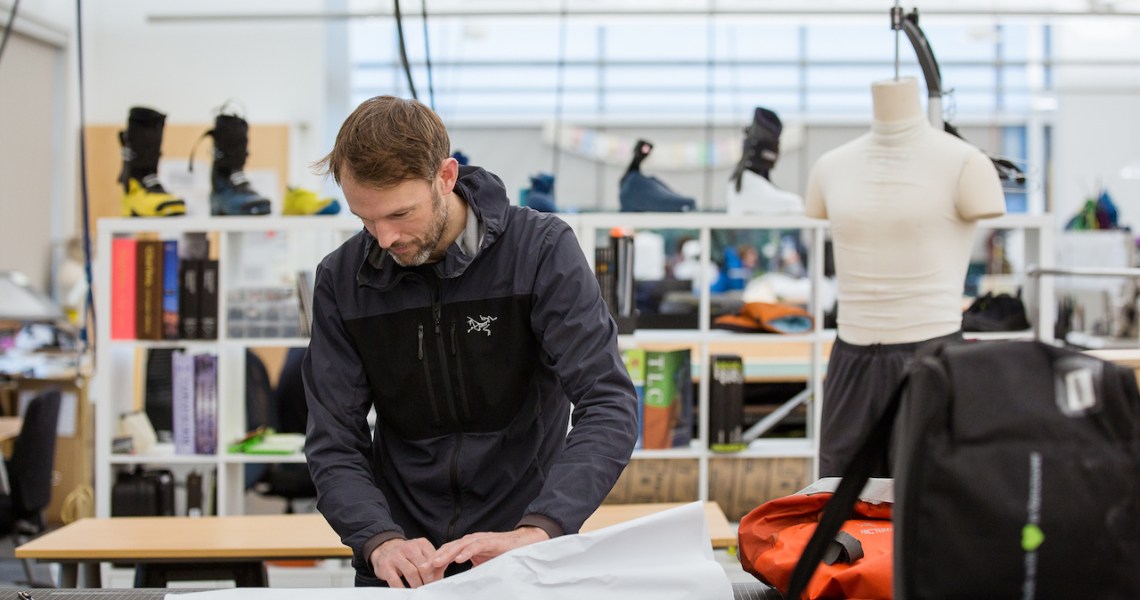As a brand that makes outdoorsy gear for people who love nature, Arc’teryx has put an emphasis on circularity and sustainability. In May, the company put all of its circularity initiatives — including resale, repairs and recycling — under one umbrella, a new program called ReBird. ReBird is a consumer-facing hub on the brand’s website where customers can learn more about circularity and buy upcycled ReBird apparel. It’s also an internal collaborative effort between all the teams at Arc’teryx to develop those efforts and products.
When 32-year-old Arc’teryx first launched its recommerce program in 2019, the team questioned how successful it would be. But with 5,000 units traded within the first six months, Arc’teryx leadership was confident there was demand for circular programs. Now, nearly six months into ReBird’s existence, Dominique Showers, Arc’teryx’s vp of recommerce, said the company is ready to expand the program. In November, Arc’teryx is opening its first dedicated repair center on Broadway in NYC’s SoHo, and next year, it will expand its resale offerings to Canada. They’re currently only available in the U.S.
“There have been a lot more people coming to us,” Showers said. “And we’re seeing more people trade-in old product in-store. We try to repair everything back to their original condition, but we’ve also started doing functional repairs, like changing out an entire panel of material using excess raw material from the manufacturing process.”
Traded-in product that can’t be resold will still get taken by Arc’teryx, either for upcycling into ReBird products, recycling or donation.
Showers said the collaborative nature of ReBird, made up of many teams from across the company, is helpful for implementing new solutions like functional repairs. The design team makes product that’s more easily, modularly repairable, the manufacturing team saves excess materials to make those repairs, and the store teams at its more than 80 stores facilitate the repairs, all led by ReBird’s guiding vision for circularity.
Arc’teryx has always offered repairs, but with the opening of the repair center in November and the centralizing of ReBird, Showers said the brand will be ramping up its marketing around repairs and circularity through in-store messaging, social ads and promotions. It’s currently offering a trade-in credit of 30% of the retail price, rather than the standard 20%.
“Education is key to what we’re trying to do,” Showers said. “It’s important for people to realize that their clothes can have a long life. We post videos on how to care for many of our products, and we’re testing some pilots right now, like a Gore-Tex cleaning event at our repair center. Gore-Tex is a material that a lot of people don’t know how to maintain, so doing [education] can go a long way toward extending the life of those products.”
Ad position: web_incontent_pos1
Showers said the focus on circularity is part of a larger philosophical shift, both within the company and in fashion at large, that puts the responsibility on brands to take some responsibility for what happens to their products after they’re sold. While it’s ultimately up to the customer to trade-in a product for resale, get it repaired and use it for a longer time, or recycle it properly, more brands are taking some ownership of the fact that it’s their job to educate customers on how to do these things.
The biggest challenge in circular fashion is logistics. Intaking product, whether for resale, repairs or recycling, is very complex. For brands in the circular space, this is where much of the focus lies.
“When we look at the retail landscape, the last 15 years have been about how to make and ship product in a quick and cost-effective way, with Amazon being the height of that,” said Stuart Ahlum, co-founder of the circular footwear brand Thousand Fell. “The next 15 years will be the opposite. ‘How do you get stuff back from people?’”
Arc’teryx relies on third-party platform Trove to power its resale, which also runs the backend of resale for brands like Lululemon and Patagonia. Starting a resale program from scratch is expensive and complicated. With ReBird in place, Showers said Arc’teryx’s plan is to keep finding ways to integrate education and expand its circular initiatives globally, first in Canada and then to other key markets like Asia and Europe.


